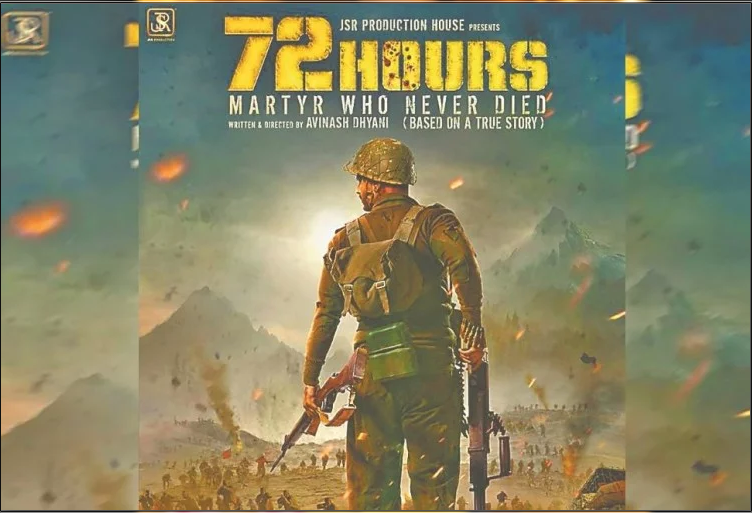In a huge honor to war hero Jaswant Singh Rawat, his bravery will now be portrayed on screen. Titled ’72 Hours: The Martyr who Didn’t Die’, the movie is slated to release on 18 January 2019 in the theaters across India.
In a country where the prime cinematic industry i.e. Bollywood, indulges only in the glorification of shady figures like Abdul Latif, Sanjay Dutt, Muhammad Azharuddin etc, it is heartening to know that a filmmaker, even if independent, has taken the pains to essay the valor of a braveheart, who is known to guard the borders of our nation even today. This movie is written and directed by Avinash Dhyani, and Rishi Bhat, who has written the dialogues, is essaying the titular role as well.
For the uninitiated, Rifleman Jaswant Singh Rawat was a young Armyman posted with 4, Garhwal Rifles at Nuranang in Arunachal Pradesh, at the time of Chinese invasion. Born in 1941 to Guman Singh Rawat in the village of Baryun, Pauri Garhwal district of Uttarakhand, Jaswant was a quiet, unassuming, yet lethal soldier who let his work do the talking.
Only 21 years old, Jaswant Rawat’s Delta Company came under siege on 18 November 1962, the same day when another company of Kumaon Regiment immortalized themselves at the Battle of Rezang La in Chushul sector of Ladakh.
The Indians fought bravely but were soon overrun by the Chinese soldiers, only Jaswant Rawat stood guard. Down, but not certainly out, it was from that moment that Jaswant Singh Rawat emerged as a true braveheart. Taking the help of two local girls, as per local folklore, Jaswant maintained his ground, refusing to let the Chinese know of the company’s demise.
For 72 hours, he fought against all odds with the Chinese soldiers, fooling them into believing that the Indian company was still there. It was only when the Chinese captured a local shepherd, that they discovered how one man’s heroics managed to fool the entire lot of Chinese soldiers. They encircled Jaswant Singh, who then committed suicide in order to avoid being captured by the rival forces, and so did the two girls, called Sela and Nura in local folklore. For his actions, Rifleman Jaswant Singh Rawat was awarded the Maha Vir Chakra posthumously.
When the Chinese forces heard of his exploits, and the way he was rewarded back home, they reverently returned his remains, along with a brass bust. It is said that since then, both his family as well as the Indian Army treats him as alive, and he continues to receive promotions, as if he were still at active duty. He doesn’t only get his salary on time; he is even accorded official leaves.
As of now, according to local sources, he has been promoted to the post of Major. He is as much revered by the soldiers as Baba Harbhajan Singh, another sepoy who is still considered alive; even after his death post the 1967 Nathu La clashes between India and China. The post where he held his ground is named ‘Jaswant Garh’ after him, and his personal belongings are preserved even today. As such, we pay our gratitude to people like Avinash Dhyani and Rishi Bhat, who has taken the pains to bring the heroics of Shri Jaswant Singh Rawat on silver screen.
